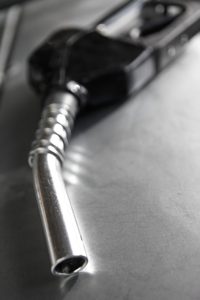Fuels and Vehicle Components

Photo: OWI
The public discussion about the admixture of liquid, alternative and biogenic fuels to petrol and diesel is exclusively about its consequences for the vehicle engines. It is often forgotten that other important vehicle components come into contact with alternative fuels and their mixtures and that their operational reliability and material compatibility is to be guaranteed permanently. General statements about alternative fuels cannot be made easily because they can have different physical-chemical characteristics depending on the raw material used or production path and on subsequent mixtures. Furthermore, possible interdependencies with fuel additives have to be considered.
In cooperation with manufacturers of vehicle components, the mineral oil industry and manufacturers of additives as well as OEM´s, the effects of biodiesel, bioethanol and other alternative fuels as for instance Oxy-Methylen-Ether (OME) or higher alcohols on technical aggregates – from the fuel tank to the engine – are investigated at OWI. Among these investigations count:
- tank systems,
- booster pumps,
- components of independent vehicle heating technology and
- diesel injections.
The main focus of research is on potential
- formation of deposits due to combustion, interdependencies with materials (swelling of fuel pipes, corrosion of metals),
- fuel deterioration due to oxidation processes and
- emissions due to combustion.
Specific test benches and test methods are developed. These investigations aim at the establishment of a methodology for an uncritical use of fuels. This can take place in systematically organised fundamental investigations, but also in individual investigations of technical components.
In doing so, two fields of action are being pursued. By developing a directed additivation or by avoiding critical ingredients of the fuels, their characteristics can be changed so that the observed formation of deposits or deterioration can be reduced. The second methodology is the development of materials and components. By means of systematic investigations, several recommendations can be worked out. For instance, for the prospective selection of materials or perhaps for a change of the thermal management for design and construction of components. Exemplary projects which have been carried out or are still carried out at OWI are
- “GObio” – Directed optimisation of fuel carrying components for biogenic fuels in mobile applications and
- “ENIAK” – Development of a non-engine injector-coking-test rig and method for alternative fuels
- REDIFUEL – Robust and Efficient processes and technologies for drop in renewable FUELs for road transport
